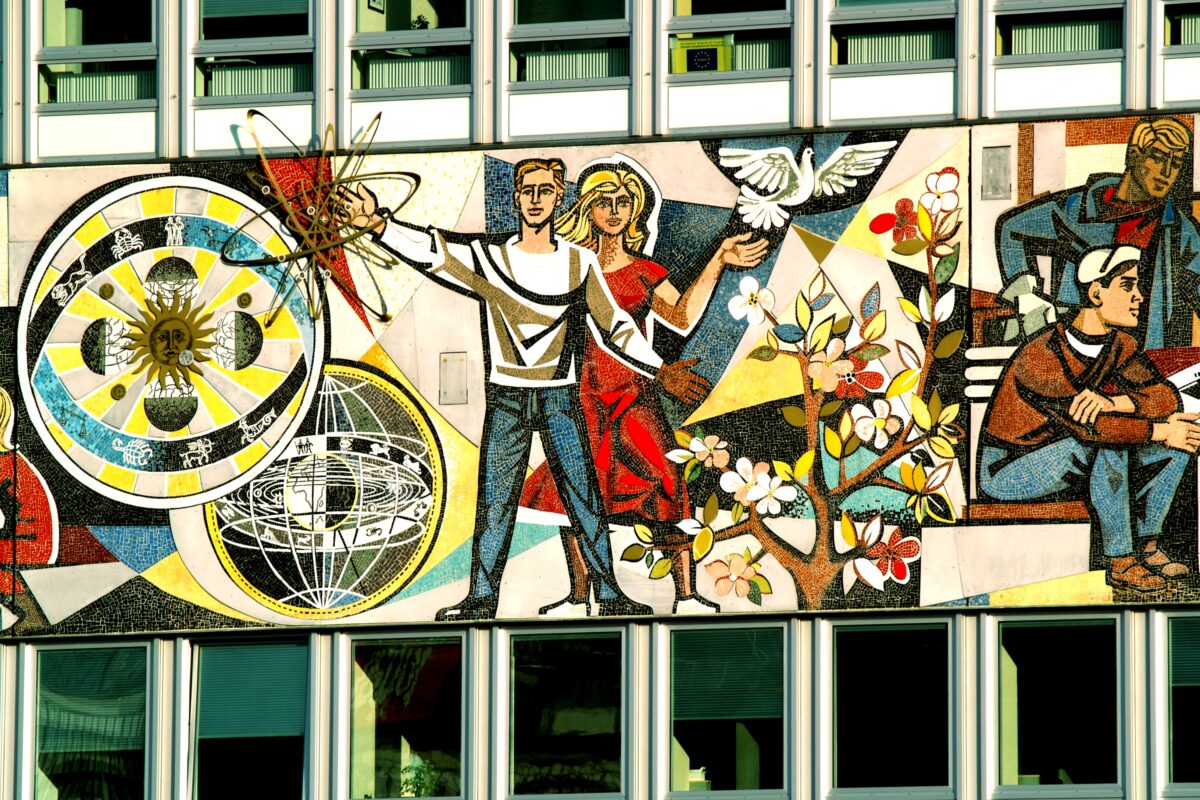Rebellious Daughters of History #6
by Judy Cox

Larissa Reissner (1895-1926): Writer, soldier and revolutionary
Larissa Reissner was born in Lublin, Poland.
Between 1903 and 1907, her family was forced to live in exile in Berlin because of her father’s activism. After 1905 Russian Revolution, the family moved to Saint Petersburg Larissa attended St Petersburg University.
During the First World War, she published an anti-war literary journal. After the February Revolution, Larissa began to write for Maxim Gorky’s paper ‘New Life’. She also took part in the Provisional Government’s teaching programme, working with workers’ and sailors’ clubs in Petrograd.
After the Bolshevik Revolution, Reisner helped the newly appointed People’s Commissar, Anatoly Lunacharsky, to win support for the revolution among artists and poets. Later, she worked at the Smolny Institute with Lunacharsky, cataloguing art treasures.
She became a member of the Bolshevik Party in 1918. During the Civil War, she was a soldier and a political commissar of the Red Army. She served as chief of an intelligence section of the Volga River flotilla in August 1918 battle for Sviazhsk.
During 1919, she served as the Commissar at the Naval Staff Headquarters in Moscow. In 1921, she and her husband traveled to Afghanistan as representatives of the Soviet Republic, carrying out diplomatic negotiations.
In October 1923 she traveled illegally to Germany to witness the revolution there first-hand and write about it, producing collections of articles entitled Berlin, October 1923 and Hamburg at the Barricades.
During 1924-1925, she worked as a special correspondent for Izvestiya, and she adopted a boy by the name of Alyosha Makarov. She also worked on Leon Trotsky’s Commission for the Improvement of Industrial Products.
Larissa died on 9 February 1926, in the Kremlin Hospital, Moscow, from typhoid; she was 30 years old.

Poem and rebel: Working-class, radical and gay: Eliza Cook (1818 – 1889)
‘A Song for the Workers’
‘Is it just the poor and lowly
Should be held as soulless things?
Have they not a claim as holy
As rich men, to angels’ wings?’
Eliza Cook was a hugely popular English author, editor and poet associated with the Chartist movement. She was the youngest of the eleven children of a brass-worker living in London Road, Southwark. She was entirely self-educated. A radical and Owenite socialist in thought, she committed herself to the mission of ‘leveling up’ her fellow working men and women.
Eliza wrote poems in support of the Charter and other radical causes. She was a proponent of political freedom for women, and her idea of ‘levelling up’ made her hugely popular with the working class public in both England and America and her ‘EIiza Cook’s Journal’ outsold Charles Dickens’ ‘Household Words’.
Eliza had a long sexual relationship with an American actress, Charlotte Cushman. The couple caused a stir by wearing matching outfits, often including male clothes, and cutting their hair short.
In ‘A song for the workers’, Eliza challenged Victorian conventions by celebrating the nobility of the labour of women as well as men, and pointed to the physical, mental and emotional aspects of exploitation.
A Song for the Workers
Let Man toil to win his living,
Work is not a task to spurn;
Poor is gold of others’ giving,
To the silver that we earn.
Let Man proudly take his station
At the smithy, loom, or plough;
The richest crown-pearls in a nation
Hang from Labour’s reeking brow.
Though her hand grows hard with duty,
Filling up the common Fate;
Let fair Woman’s cheek of beauty
Never blush to own its state.
Let fond Woman’s heart of feeling
Never be ashamed to spread
Industry and honest dealing,
As a barter for her bread.
Work on bravely, GOD ‘s own daughters!
Work on stanchly, GOD ‘s own sons!
But when Life has too rough waters,
Truth must fire her minute guns.
Shall ye be unceasing drudges?
Shall the cry upon your lips
Never make your selfish judges
Less severe with Despot-whips?
Shall the mercy that we cherish,
As old England’s primest boast,
See no slaves but those who perish
On a far and foreign coast?
When we reckon hives of money,
Owned by Luxury and Ease,
Is it just to grasp the honey
While Oppression chokes the bees?
Is it just the poor and lowly
Should be held as soulless things?
Have they not a claim as holy
As rich men, to angels’ wings?
Shall we burthen Boyhood’s muscle?
Shall the young Girl mope and lean,
Till we hear the dead leaves rustle
On a tree that should be green?
Shall we bar the brain from thinking
Of aught else than work and woe?
Shall we keep parched lips from drinking
Where refreshing waters flow?
Shall we strive to shut out Reason,
Knowledge, Liberty, and Health?
Shall all Spirit-light be treason
To the mighty King of Wealth?
Shall we stint with niggard measure,
Human joy, and human rest?
Leave no profit—give no pleasure,
To the toiler’s human breast?
Shall our Men, fatigued to loathing.
Plod on sickly, worn, and bowed?
Shall our Maidens sew fine clothing,
Dreaming of their own, white shroud?
No! for Right is up and asking
Loudly for a juster lot;
And Commerce must not let her tasking
Form a nation’s canker spot.
Work on bravely, GOD ‘s own daughters!
Work on stanchly, GOD ‘s own sons!
But till ye have smoother waters,
Let Truth fire her minute guns!



